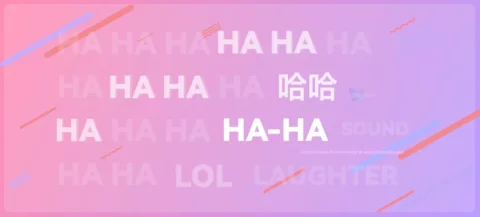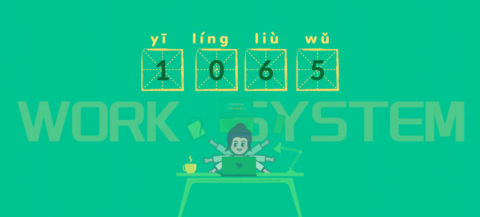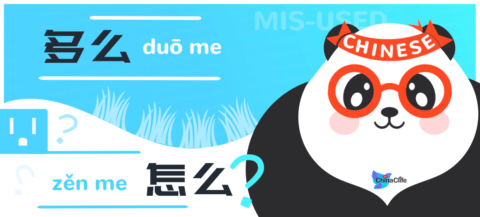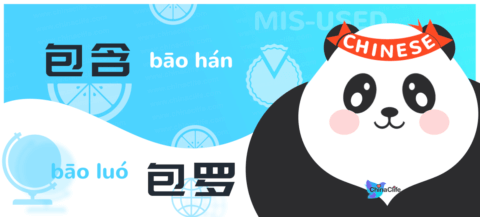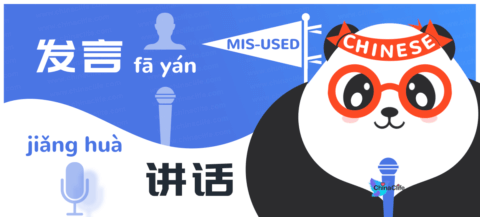The Viral Chinese Weekdays/Workdays homophonic Jokes And Memes
中文网络上流行的星期谐音梗
If you have read the previous story about How to speak weekdays, weekend and week time words in Chinese, you may get some interested in the following Weekdays' Chinese homophonic jokes an memes which have gone viral on the Chinese social platform. Hope they bring you some fun on the daily Chinese learning.
Target Story Words
English Words:
Chinese Pinyin:
Standard Chinese:
Similar Chinese Words:
星期网络梗 xīng qī wǎng luò gěng The popular memes about Weekdays on the Internet.
Related Chinese Words:
梗 gěng The viral memes and jokes in Chinese.
谐音 xié yīn The homophonic words or characters has similar pronunciations but different meanings.
Table of Story
- Story Word in EN/CN/Pinyin
- Listen to Chinese Pronunciation
- The Chinese homophonic Jokes And Memes About Workdays
- Monday homophonic Jokes
- Tuesday homophonic Jokes
- Wednesday homophonic Jokes
- Thursday homophonic Jokes
- Friday homophonic Jokes
- Saturday homophonic Jokes
- Sunday homophonic Jokes
- The Next May Interest You
- Share & Comment
The Chinese homophonic Jokes And Memes About Workdays
工作日谐音梗
The homophonic jokes (谐音梗 (xié yīn gěng)) and puns are in everywhere in the Chinese language world, which often make people laugh and bring a lot of fun to the daily life especially to our Chinese learning.
Recently, a group of "Weekday" homophonic memes went viral on the Chinese social network. The English words from Monday to Sunday were labeled with some Chinese characters and words that are pronounced similar to each other. The meanings of those selected words and characters keep properly close to the busy working state and psychology of the common wage-earners, so do they are getting hot on the Internet.
Then let us take a look at the following Chinese Weekday and Workday memes for getting some fun on the day-by-day Chinese learning.
Monday v.s. 忙 Day
星期一:忙 Day
The character 忙 (máng) in Chinese is used to describe the busy state, often appearing as a compound word combining with another character with the similar meaning, such as “忙碌的生活” equal to the busy life, "繁忙的工作" implying the busy work.
In Monday's Chinese homophonic meme, the Chinese word “忙” sounds similar to "Mon", the front half of Monday, which implies that Monday is always a very busy day.
Tuesday v.s. 求死 Day
星期二:求死 Day
The Chinese verb 求 (qiú) means to beg for or entreat for something in the Standard Chinese (Mandarin) language. Most of Chinese words including this character should contain the similar meaning, such as "恳求" equal to entreat someone for something, "祈求" for praying for something.
The second 死 (sǐ) is a much commonly-used word in Chinese, means the death as a noun and go to die as a verb.
In Tuesday's Chinese homophonic meme, the word "求死", although has a little similarity on the pronunciation to Tuesday, implies that we still have to work hard on Tuesday which is so painful that make us wanna go crazy and freak out.
Wednesday v.s. 未死 Day
星期三:未死 Day
The character 未 (wèi) in Chinese means not yet, e.g. something is not yet happen equal to "未发生" in Chinese.
In Wednesday's Chinese homophonic meme, the word "未死", with similar pronunciation to "Wednes", the front part of Wednesday, indicate that It's still a have-to-work day but I am going to die of exhaustion.
Thursday v.s. 受死 Day
星期四:受死 Day
The first character 受 (shòu) is a Chinese verb, equal to bear, endure, suffer or accept something, such as the Chinese word "受苦" means suffering, and "接受" equal to accept.
In Thursday's Chinese homophonic meme, the word "受死", a little similar on the pronunciations, here implying that we still have to suffer for the hellish work on Thursday.
Friday v.s. 福来 Day
星期五:福来 Day
You may be familiar with the Chinese word 福 (fú) which can be found everywhere in China at the end of the year, especially around the period of the Chinese Spring Festival. It is a very popular Chinese word which means good luck and fortune is coming soon.
In Friday's Chinese homophonic meme, the word "福来", gives an indication that happy hours are coming after work and you will get good fortune indeed on Friday.
Saturday v.s. 洒脱 Day
星期六:洒脱 Day
The both characters 洒脱 (sǎ tuō) is one whole Chinese word which usually describes a natural and unrestrained state of a person, the meaning getting close to free and big-hearted in English.
In Saturday's Chinese homophonic meme, the word "洒脱" apparently tells us that Saturday becomes a "day to be cool and free to have fun" when we won't have to work.
Sunday v.s. 伤 Day
星期日:伤 Day
In Chinese language, the character 伤 (shāng) is a common-to-use word, means the wound, hurt or sadness when it is a noun, or get injured when it is a verb, e.g. "受伤". For example, "I am hurt" is translated into "我手受伤了" in Chinese.
In Sunday's Chinese homophonic meme, the word "伤", with a Chinese sound similar to "Sun", the front part of Sunday, indicates that the happy weekend will end up soon and then Monday is coming, which means a new circle of hard work on the way. Those make Sunday to be a so "Sad day", specially the sorrowful Sunday night.
To know more popular Chinese words jokes, and look for starting Chinese learning entertainingly, keep an eye on our update at www.chinaclife.com.
Enjoy!
Questions & Additional
Have you got any tips from the Chinese story above?
Do you have any other questions or suggestions?
You are free to write it down in the "Comments" section below or in our groups.
Any thought from you is appreciated, valuable, and might help the rest of the residents on the planet. 😀
Additionally...
Did You Start Learning Chinese with Pinyin?
Continue to read our User-friendly English-Chinese Bilingual Version of this story
(Unlocked for Free Logged-in and Premium residents only).
Hope it Helps! : )


















